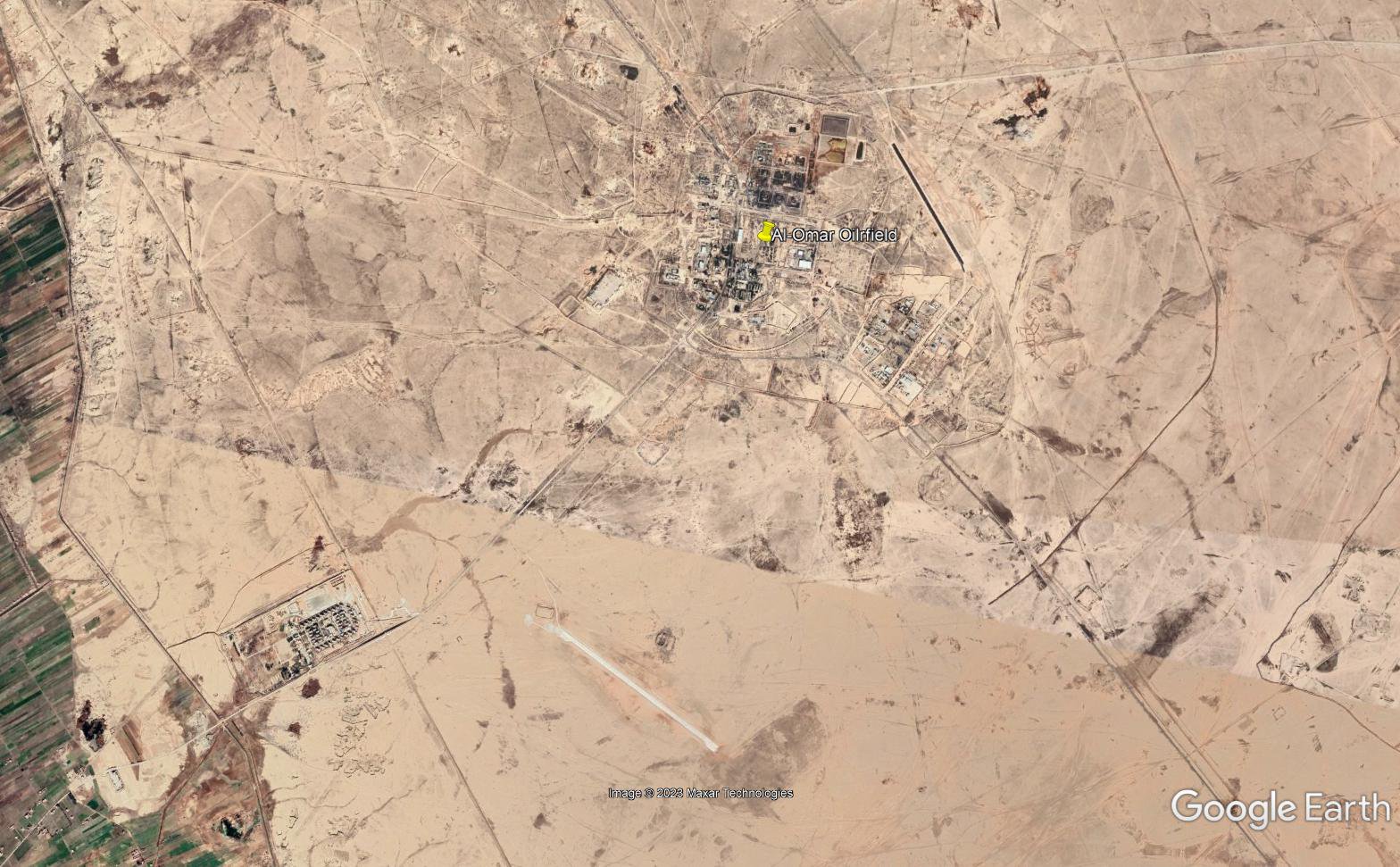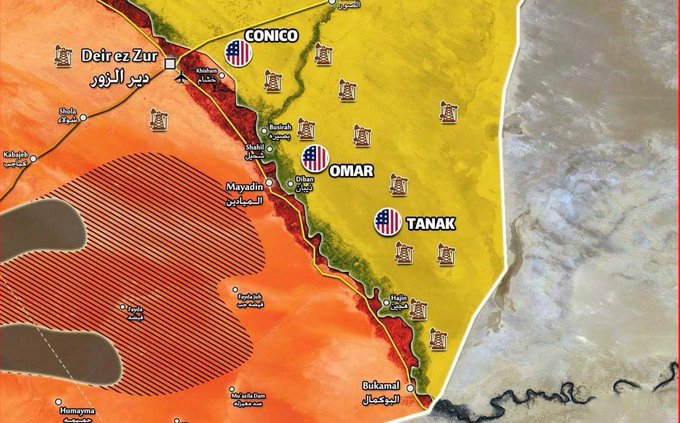Russia Restores Balance in the Middle East, by Gevorg Mirzayan for VZGLYAD. 03.24.2023.
Saudi reconciliation with Syria will affect Russia's interests.
Tectonic shifts continue in the Middle East, which until recently it was difficult to even imagine. Saudi Arabia is now reconciling not only with Iran, but also with Syria - and it was the Saudis who first of all gave money to overthrow Assad. What is happening is directly related to the interests of Russia.
“It seems that there is a wide process of shuffling the cards in the region, the result of which may be new alliances - as a result, everything will turn on its head,” writes the regional edition of Al-Jarida about the current situation in the Middle East.
And one of the main participants in this process is Saudi Arabia. Riyadh recently reached an agreement, brokered by China, to restore diplomatic relations with its main regional adversary, Iran. Now the Saudis are restoring relations with another of their enemies - Syrian President Bashar al-Assad. For the relevant negotiations, a high-ranking member of the Assad family came to the Saudi capital (according to rumors, this person was the president's brother, Maher). The Saudi embassy in Damascus is expected to open at the end of the Muslim holy month of Ramadan. And the return of the embassies will be followed by the return of Syria to the League of Arab States.
Saudis rush to reconcile
The Saudi-Syrian process is part of a more global process of normalizing relations between Damascus and the Middle East countries. After the devastating February earthquake, the Syrian capital was visited by the foreign ministers of Egypt and Jordan for the first time since the start of the civil war, and the Saudis sent a plane with humanitarian aid to Aleppo. On March 19, Bashar al-Assad and his wife were met with all honors in the United Arab Emirates.
However, Saudi Arabia is the main Arab country now, and the degree and pace of the restoration of contacts between Bashar al-Assad and his neighbors depends on it. Judging by the current position of Riyadh, the choice was made in favor of acceleration.
Saudi Arabia has several reasons for this.
First of all, it is fixing losses. The wrong bet on the overthrow of Assad not only did not lead to success, but also deprived Riyadh of a number of positions in the Middle East.
Saudi Arabia was ousted not only from Syria, but also from Lebanon - and not only the Iranians were ousted, but also the Turks, who turned out to be much more flexible than the Saudis. And now Riyadh wants to do what Ankara (its rival in the struggle for regional leadership) began to do several years ago after joining the peace process at the Russian invitation - that is, to return to Syria, located in the center of the region. As rightly pointed out by the UAE Ministry of Foreign Affairs, it is imperative to "strengthen the Arab role in Syria."
But if Turkey has not yet completed this process (everyone is talking about a possible summit between Erdogan and Assad, but potential negotiations on this in Moscow between the Syrian and Turkish delegations did not take place), then Riyadh wants to go through the entire procedure in a matter of months. And thus bypass Ankara, which made a powerful debut in the endgame of the diplomatic game on the Syrian board.
Saudi Arabia wants not only to return, but also to acquire. Initially, the main goal of Riyadh in Syria was not the overthrow of Assad, but the withdrawal of Syria from the influence of Iran. Regime change was seen only as the (seemingly) most effective method to achieve this goal.
Now this method is not feasible - however, according to Riyadh, the goal still looks partially achievable. It will not be possible to drive Iran out of Syria, but it is quite possible to tempt Assad into creating a parallel strategic cooperation with the Saudi leadership. If only because Saudi Arabia (unlike Iran) has tens of billions of free dollars that it can invest in the reconstruction of Syria from the consequences of the civil war and the February earthquake. Simply put, the Saudis are ready to exchange a broken stick for quite an attractive carrot.
Damascus is not against, Moscow is for
Apparently, Assad is not opposed to the Saudi proposal. Moreover, in the process of negotiations, the Syrian side, apparently, removed a number of details that were unfavorable for it (according to the Wall Street Journal, Assad was required to find a compromise with the opposition and accept troops from Arab countries to protect refugees returning to Syria, but he refused).
The Syrian president needs not only Saudi (as well as Emirati, etc.) money, but also the balance of an overly strong Iran. The Syrian leadership sees its country as a friend and partner of Tehran, but not as a vassal state that does not have the right to a multi-vector policy. So Tehran has every reason to be wary of the Syrian-Saudi rapprochement.
However, another ally of Damascus - Moscow - has every reason to be pleased. Of all the outside countries, Russia is likely to be the main beneficiary of this rapprochement. At least because it helps Russia in the implementation of the three most important goals: internal Syrian, Middle Eastern and diplomatic.
The main task of Russia in the intra-Syrian space is the complete victorious end of the civil war - and this task has not yet been completed.
Moscow has destroyed the terrorists and helped Damascus regain control over vast areas, but the political process is not yet complete. Assad's opponents still have large resources - and above all through funding from external players. Same Saudi Arabia. And if Riyadh actively gets involved in the political settlement of the Syrian crisis (that is, in other words, forces its proxies to either negotiate with Assad or live without Saudi money), then it will be much easier for Moscow to achieve reconciliation between various Syrian groups.
From the Middle East point of view, the Syrian-Saudi normalization plays to the de-escalation in the region. It destroys another pivot around which regional conflicts are built. This means that it deals another blow to the reasons for maintaining the American military presence in the Middle East. In effect, the Americans (and their European allies, who are still saying “Assad must go”) are isolated.
From a global point of view, the restoration of relations between Damascus and Riyadh strengthens Russian diplomacy. If Washington in the Middle East played according to the principle "you are either with us or against us", then Russia acted on the basis of the thesis "we are friends with everyone who is not friends against us."
In the 2010s, when Russia entered the region with this thesis, it seemed almost impossible. The Turks were in conflict with the Syrians, the Iranians with the Saudis, the Israelis in general with all the Arabs (as well as the Iranians, who were also in conflict with the Israelis). And each side tried to take Russia as its ally against the other.
As a result, Moscow not only managed to stay on the thin line of neutrality, but also actively contributed to the process of reducing these conflicts (Saudi-Iranian, Syrian-Turkish, and now Saudi-Syrian). This not only contributed to the stabilization of the situation in the region, but also corresponded to Russian interests.
Russia has effectively shuffled all the cards in the Middle East, resulting in new alliances and turning everything upside down. Well, more precisely, from head to foot - that is, to that form of interaction and cooperation between states, which is considered normal, civilized and correct. And that means - beneficial to Russia.
https://vz.ru/world/2023/3/24/1204606.html







